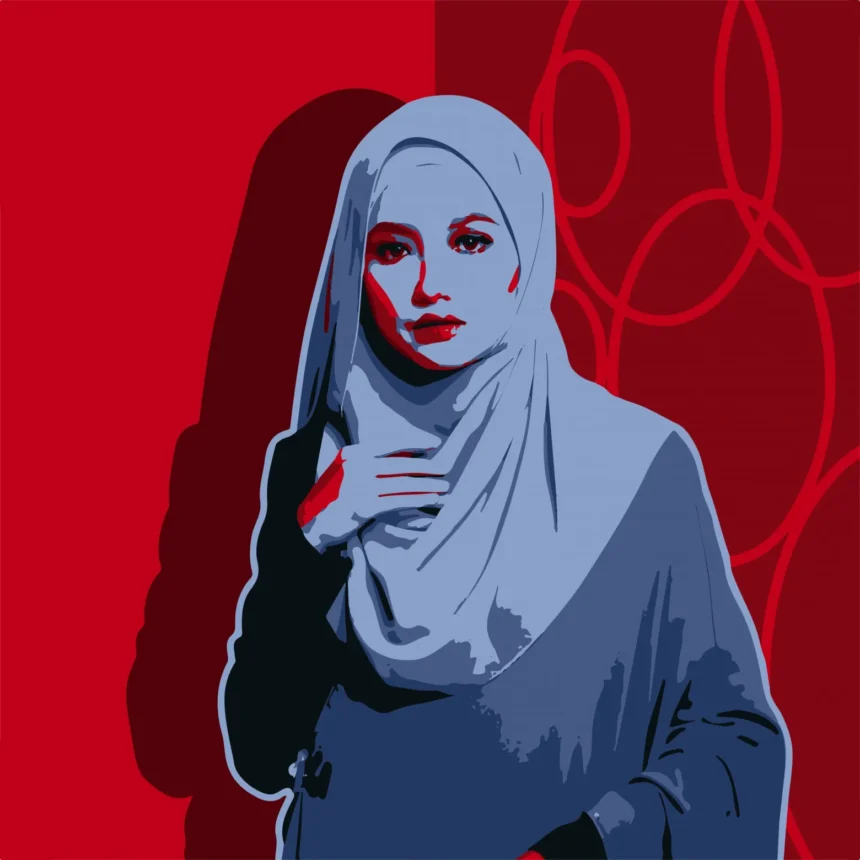Bill 21, officially known as the “Law on the Secularity of the State,” was enacted in June 2019 in the province of Quebec, Canada. This legislation prohibits certain public employees, such as teachers, police officers, and judges, from wearing visible religious symbols while performing their duties. The law has been presented as an effort to promote the secularism and religious neutrality of the State in a diverse society, reflecting the values of secularism that are fundamental in Quebec’s culture and history.
Questioning the Justification
However, I contend that this law is neither justified from the standpoint of the foundations of secularism nor its purposes. It should be neutral, but it is not. It should target the freedom of conscience and equality of citizens, but far from realizing these two principles, it betrays them by disproportionately affecting the rights of Muslim women. Secularism should be an impartial political instrument fostering respect for the moral identities of citizens, not a mechanism for exclusion and discrimination against minority groups.
Principles of Secularism
To understand the depth of this contention, it is essential to recognize that secularism is defined by two principles: the separation of powers between politics and religion, and the neutrality of the State towards various religious or philosophical convictions. These two principles aim to guarantee the moral equality of citizens and their freedom of conscience. In the absence of the first, freedom of conscience is threatened because citizenship requires adherence to public religion. In the absence of the second, equality among citizens is endangered, as individuals may be treated differently based on their religious beliefs. Thus, the very essence of Bill 21 seems to contradict the core values it claims to uphold, leading to a complex and multifaceted debate on the role of secularism in modern society.
Thus, when Article 4 of Bill 21 states that “the secularism of the State requires respect for the prohibition of wearing a religious symbol,” this assertion should be justified by showing that wearing religious symbols constitutes an infringement on the principle of separation of powers between the State and religions or the religious neutrality of the State. Is this the case?
Concerning the principle of separation, neither the authorization nor the prohibition of wearing religious symbols by employees in positions of authority says anything about official support, public funding of religious education, or state promotion of one or more religions. In fact, Bill 21 does not address issues such as the financing of private religious schools and the elimination of tax credits for religious organizations and other benefits granted for religion. It is these areas, not the wearing of religious symbols, that must be examined to determine whether the principle of separation between religion and the State is challenged in Quebec.
Regarding the principle of neutrality, it is difficult to see how any of its possible interpretations could justify Bill 21. According to the neutrality of opportunities, a State is neutral when it offers all lifestyles the possibility of benefiting from the same opportunities. According to the neutrality of effects or consequences, government policies must seek to have a similar impact on all conceptions of good. According to the neutrality of purposes, the State must not aim to favor one conception of good over others or do anything to make it more likely that individuals will accept one particular conception rather than another. According to the neutrality of justification, the State cannot justify its policies based on a specific conception of good or consider one conception of good as better than others or refer to its intrinsic value. Finally, according to the neutrality of treatment, a State is neutral when it assists or hinders rival conceptions of good equivalently. Thus, a State violates the neutrality of treatment when its policies are more accommodating, or less accommodating, for certain conceptions of good than for others.
Consequences and Discrimination
The question that arises is, therefore, which conception of neutrality is violated when State employees wear a religious symbol? Evidently, the neutrality of opportunities, effects, and purposes are not relevant. The fact that some employees wear religious symbols does not mean that the State refrains from offering certain lifestyles opportunities that it offers to others, or that such signs translate into policies having dissimilar impacts on other conceptions of good. Moreover, it is simply not possible to deduce that when the State allows the wearing of religious symbols by its employees, it is actually seeking to favor a particular religious conception.
Perhaps the conception of neutrality most apt to justify Bill 21 is that of justification? This conception makes it possible to argue that when public employees wear a religious symbol, they act as representatives of the State, and such signs may be perceived as evidence of a judgment on the value of religion. The fact that Article 3 of Bill 21 states that “the secularism of the State requires” that the principles on which secularism is based be respected “in fact and appearance” probably aims to prevent the State from being perceived as issuing a judgment as to the intrinsic value of the religious symbols worn by its employees. However, it is evident that the acceptance of the wearing of religious symbols by public officials does not refer to the approval of the intrinsic value of their conceptions of good. In any case, it could be interpreted as a recognition of the value of religion for the moral identity of employees who wear a religious symbol. Far from constituting a violation of the principle of neutrality, a public service that reflects the cultural and religious diversity of a society shows impartiality and democratic inclusion.
Moreover, a visibly uniform public service is not necessarily neutral, if only because there is no necessary link between wearing a religious symbol and actions based on religious faith in the context of a job. Public sector employees must be evaluated based on their actions, not the opinions attributed to them by the manifestation of their belief. Moreover, as Quebec philosopher Michel Seymour says, the prohibition of religious symbols of employees betrays a lack of neutrality towards religion, as such intervention goes against a particular way of living religion while favoring religions that easily adapt to the absence of ostentatious signs. It constitutes, in a word, a violation of the neutrality of treatment.
As for the purposes of secularism, the fact that Bill 21 indirectly discriminates against employees who wear religious symbols constitutes a considerable departure from the principle of moral equality. Studies have noted, for example, that this law disproportionately affects women who wear the hijab, niqab, or other forms of head coverings, resulting in discriminatory effects based on the intersection of religion and gender. Muslim women are particularly affected not only because of the significant number of them who wear the hijab but also because of their presence in the public sector, making them the largest religious minority affected by this law. In fact, some of the professions targeted by the ban are in sectors where women are much more likely to be employed, such as educators. Bill 21, therefore, puts obstacles in the way of employment opportunities for Muslim women aspiring to these positions, while preventing those already in post from obtaining professional promotions.
McGill historian Elizabeth Elbourne has stated that she observed the “deep distress” caused by the impact of Bill 21 on students. Along with other researchers, she conducted a study examining how this law affects the career choices and experiences of discrimination of students in Quebec’s law and education faculties. The research showed that 34% of respondents reported increased discrimination since the adoption of the law. More than half said they would look for work outside Quebec because of Bill 21. Justice Femme, an organization dedicated to the defense and promotion of women’s rights, has denounced that harassment against Muslim women has greatly increased in Quebec since the introduction of Bill 21. From that moment, Muslim women have reported a wide range of incidents. They are the target of aggressive comments and physical assaults in public (including attempts to snatch the hijab and a case of spitting on a woman). They must face harassment and intimidation not only at work but also on the internet, which has prompted several women to remove profile photos in which they appeared with their hijab.
Conclusion
Article 2 of Bill 21 states that the secularism of the State is based on the principle of equality, yet it does not impose religious restrictions on those whose moral identities do not require wearing a religious symbol. These individuals can choose careers of their choice without having to give up a central component of their moral identity, without betraying their religion. The law also claims to be based on freedom of conscience, but it contains a derogatory provision under which it is exempted from the application of the Charter of Rights and Freedoms. It asks some of its employees to choose between their moral commitments and their professional careers, between their moral integrity and the opportunity to pursue a career of their choice. Freedom of conscience calls for the right to protection against any action by the State that restricts individuals from fulfilling what they understand to be their moral obligations and serves as the basis for exemptions from laws and rules that prevent them from acting in accordance with these obligations. If secularism aims to realize the principle of freedom of conscience, Bill 21 aims to restrict it.









